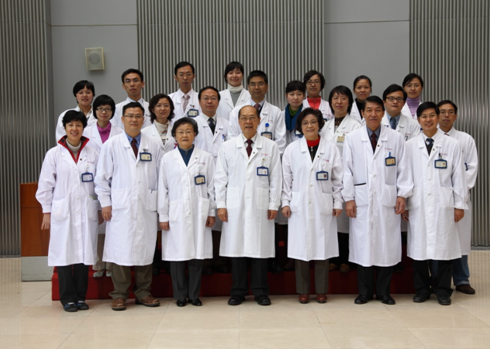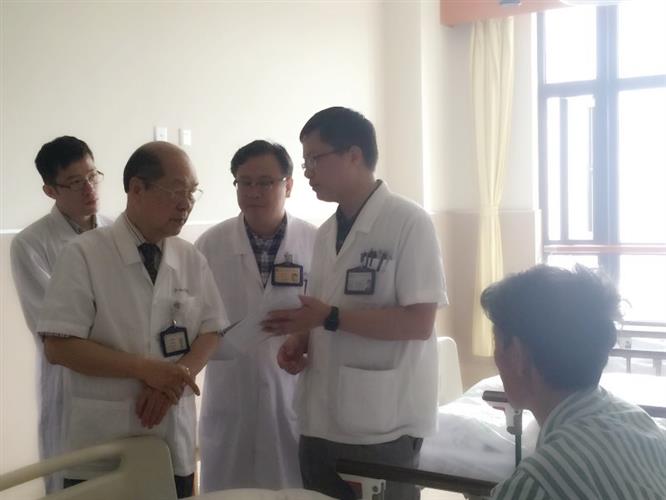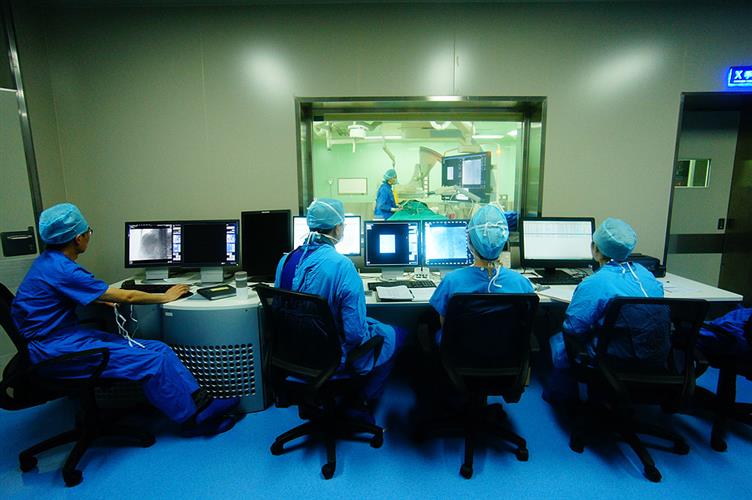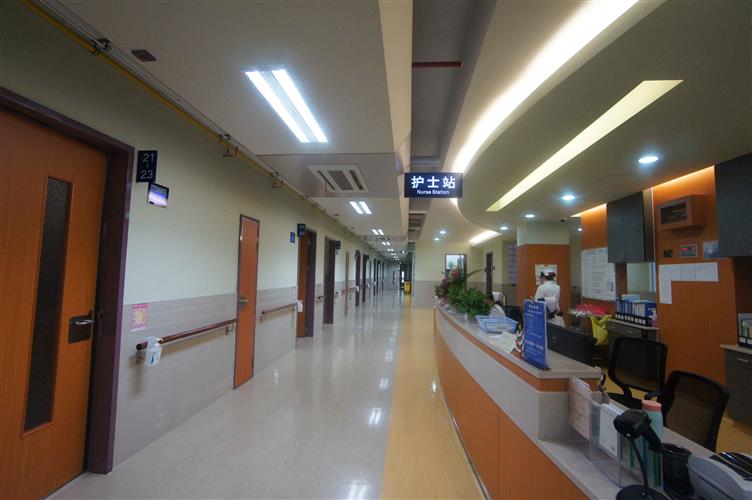
Introduction
Co-founded by two renowned experts in the field of liver cancer, Professor Tang Zhaoyou, academician of Chinese Academy of Engineering, and Professor Yang Binghui, this department has a history that can be dated back to 1969 when the Liver Cancer Diagnosis and Treatment Team in Zhongshan Hospital was formed. It was in this department that the treatment mode of “Diagnosing and treating the disease at an early stage, combining medical methods with surgical methods and Chinese medicine with western medicine” in curing liver cancer was first proposed.
As an important part of Liver Cancer Research Institute of Fudan University, with the concerted efforts of generations of medical staff in the past four decades, the Liver Cancer Department has become a major diagnosis and treatment center for non-operation cases and comprehensive treatment of liver cancer. It is one of the key national disciplines, Clinical Medicine Center of Liver Cancer in Shanghai, a key clinical discipline of Ministry of Health, and the top-priority discipline of Fudan University. It is a key discipline in Oncology among “985 Projects” and “211 Projects”, and serves also as the supporting institution for the Special Committee of Liver Cancer and the Clinical Pharmacology Base in Zhongshan Hospital for State Drug Administration. The department played a leading role in formulating the “standards of diagnosing and treating primary liver cancer” for the Ministry of Health. Successively, it took on or contributed to some major national technological projects, such as the fundamental research programs of “973 Project” and “863 Project” , researches funded by the National Natural Science Foundation, funds for technological and strategic breakthroughs during the sixth Five-year plan and the eleventh Five-year plan and for the key disciplines of Ministry of Health, and Chinse Medical Association in U.S. It has obtained many awards including the first prize of the National Prize for Progress in Science and Technology in 1985 and 2006, the first prize conferred by Ministry of Health for Progress in Science and Techonology in 1996, the first prize of Shanghai Municipal Prize for Progress in Science and Technology in 2002, the first and second prizes of Chinese Medical Technology Prize in 2002 and 2001, the highest honor given by the Ministry of Education for Progress in Science and Technology in 2006, and the second prize of Shanghai Municipal Prize for Progress in Science and Technology in 1987, 2000, 2001, and 2003.

After decades of development and accumulation, the Liver Cancer Department now has a well-structured team formed by talents of three productive generations and characterized by all-round skills, unity and stability. Headed by Professor Ren Zhenggang, the department has 27 staff, among whom there are 4 professors, 8 associate professors, and 14 attending and resident physicians. Besides, it is home to 4 doctoral supervisors, 3 master tutors, and 3 professors who givelectures at Shanghai Medical College of Fudan University. Some of the professors also hold posts in multiple major international and national academic institutions, such as ILCA, The Liver Disease Division of the Chinese Medical Association, Chinese Anti-cancer Association, The Liver Cancer Special Committee of Chinese Anti-cancer Association, The Cancer Biotherapy Special Committee of Chinese Anti-cancer Association, The Tumor Immunity and Biotherapy Division of the Chinese Society of Immunology, China Medicinal Biotechnology Association, Liver Disease Special Committee of Shanghai Medical Association, Shanghai Anti-cancer Society, Shanghai Immunology Association, and Shanghai Municipal Center for Disease Control and Prevention. Some professors are in the editorial board of major international and national academic journals.

Clinical Features
In treating patients with liver cancer, the department normally adopts the non-operational and comprehensive treatment methods, which include stranscatheter hepatic arterial chemoembolization, radiofrequency ablation, microwave ablation, laser ablation, percutaneous ethanol injection, biotherapy and molecular targeted therapy.
The department has rich clinical experience and has handled tens of thousands of cancer cases. Each year it performs transcatheter hepatic arterial chemoembolizations on more than 4000 patients, and liver partial ablation on more than 2,500 patients with favorable results and few complications. The survival rates of small hepatocellular carcinoma in 5 years and 10 years after laser ablation are 50 percent and 30 percent with a short period of stay in hospital and few complications. The medical skills and conditions of this department have reached the advanced level both in China and in the world.

Teaching and Research Achievements
The research focus of this department closely follows the objective of “combining basic researches with clinic researches, laying stress on clinical transitional researches, and serving the patients”, and the department promotes the construction of research platform and the nurturing of academic echelon through various projects. In recent years, the Liver Cancer Department has more than 10 projects supported by National Natural Science Foundation, and its academic achievements have been published in major international journals such as Journal of Clinical Oncology and Hepatology.
The department highly values transforming academic achievements into clinical applications and adoption of the latest technologies. It participates in clinical trials in several international and national centers, and by initiating and launching several prospective clinical researches, it applies the latest techniques and academic achievements intoclinical practices and offers patients the best medical services.
Every year, the department trains 5 to 6 postgraduates and with the support of the National Further Education Project, regularly organizes a refresher program on “new techniques of partial treatment for liver cancer in China”, which introduces and promotes the clinical adoption of partial treatment for liver cancers and attracts specialist physicians from all over the country. Also, it takes on the mission of training resident physicians and oncologists in Shanghai and educating postgraduates and refresher doctors. It also hosts several important academic meetings in China and edited or co-edited some major academic works in this field such as Modern Oncology and Primary Carcinoma of the Liver.



